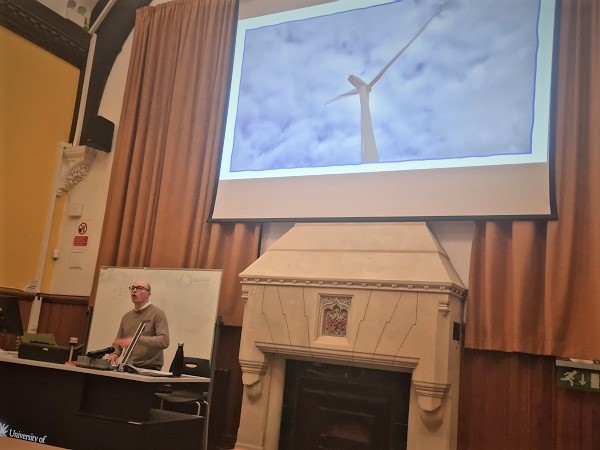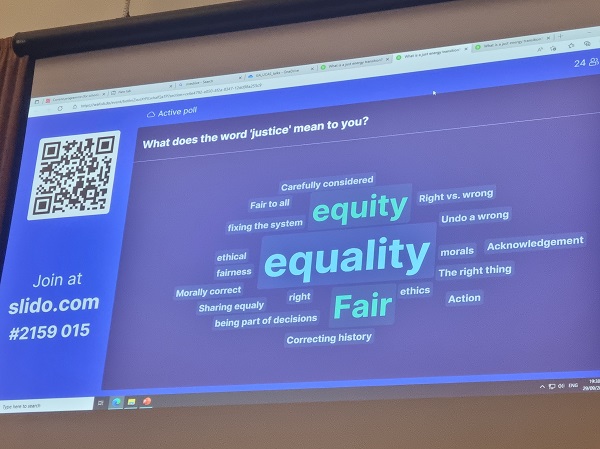Miriam McGrath, Yr 12, St Mary Redcliffe and Temple School, reports on energy lecture
“What is fair energy transition?”
GA evening lecture, 29th September 2022
Report by Miriam McGrath, Yr 12, St. Mary Redcliffe and Temple School.
As the need to transition to sustainable energy is brought to the forefront of the public consciousness, questions about how this issue intersects with social equity are being asked.
There is sometimes neglect of this part of sustainable development, with the focus placed on large scale projects undertaken by massive companies while the needs of locals are left ignored.
Dr Ed Atkins researches the topic of just transition, and his talk on 29th September to sixth form and PGCE students from local Bristol schools posited some interesting ideas in this area. For example, he noted how under 500 people in Scotland own 50% of the privately held land, and explained how this creates a challenge for equitable energy policy, because those who make the decisions about the land are often not affected by the decisions. He stressed the need to listen to the concerns of local communities.
Rather than leaving the audience with a nebulous concept or vague platitudes, he highlighted the real work of Ambition Lawrence Western, a group which acts within the Lawrence Western community in Bristol. It was founded by residents and in 2020 gained planning permission for the largest wind turbine in England. This will provide enough electricity to power 3500 homes and stop 1965 tonnes of CO2 from entering the atmosphere every year. Lawrence Weston is one of the more deprived communities in Bristol and experiences high levels of fuel poverty, which is compounded by the poor insulation and low energy efficiency of the houses (the UK has the oldest housing stock in Europe with 1 in 5 houses over a century old). The hope is that this project will help tackle this issue of fuel poverty by showing that environmental sustainability and social equity go hand-in-hand.
Ed also talked about how sustainability can be achieved with the co-operation of local authorities. These are often more equipped than national governments to be able to tackle issues specific to areas and communities as they can address specific concerns. The West of England Combined Authority, for example, awarded a £500,000 capital grant to the turbine project .
Our lecture experience was really interesting, not only because of the great content, but also the way in which it was presented. Ed Atkins spoke with passion and captivated the audience with often lyrical delivery. No dry reciting of notes, this lecture was designed to drive home the situation with impact: This issue effects real people and there are real stakes, but there are also achievable things people can take part in and do to create change.

Ed also involved the audience through the use of ‘Slido’, asking what justice means to them. This was effective in increasing the level of engagement of the audience, encouraging real consideration of the matter at hand.

The ideas behind a lecture are important, and so is the way they are expressed. In both areas, Dr Atkins succeeded. I am sure that everyone who attended left with new ideas about how their work as geographers effect people, and how as a society, we do not have to choose between helping people and the environment- they are inextricably interlinked.
